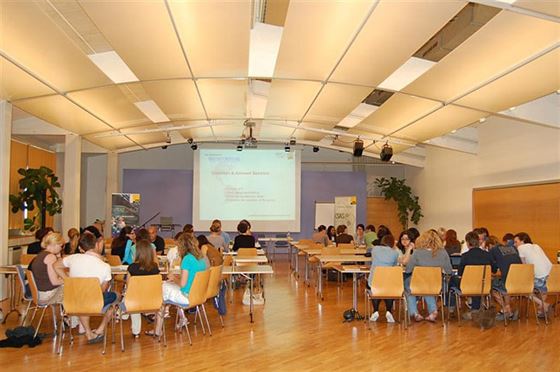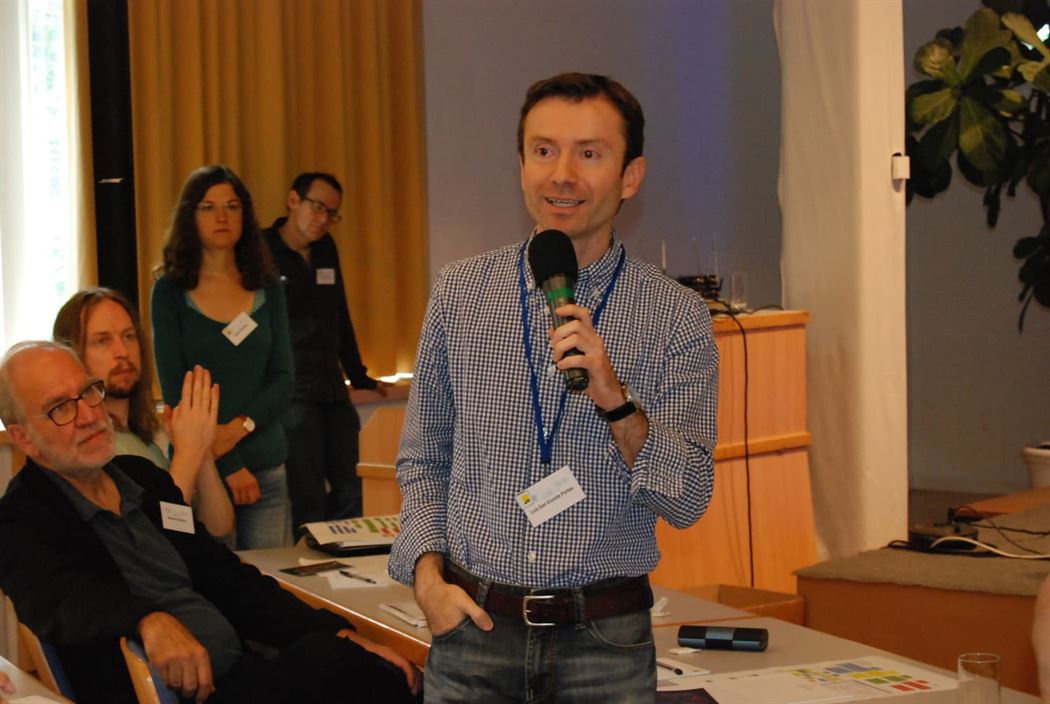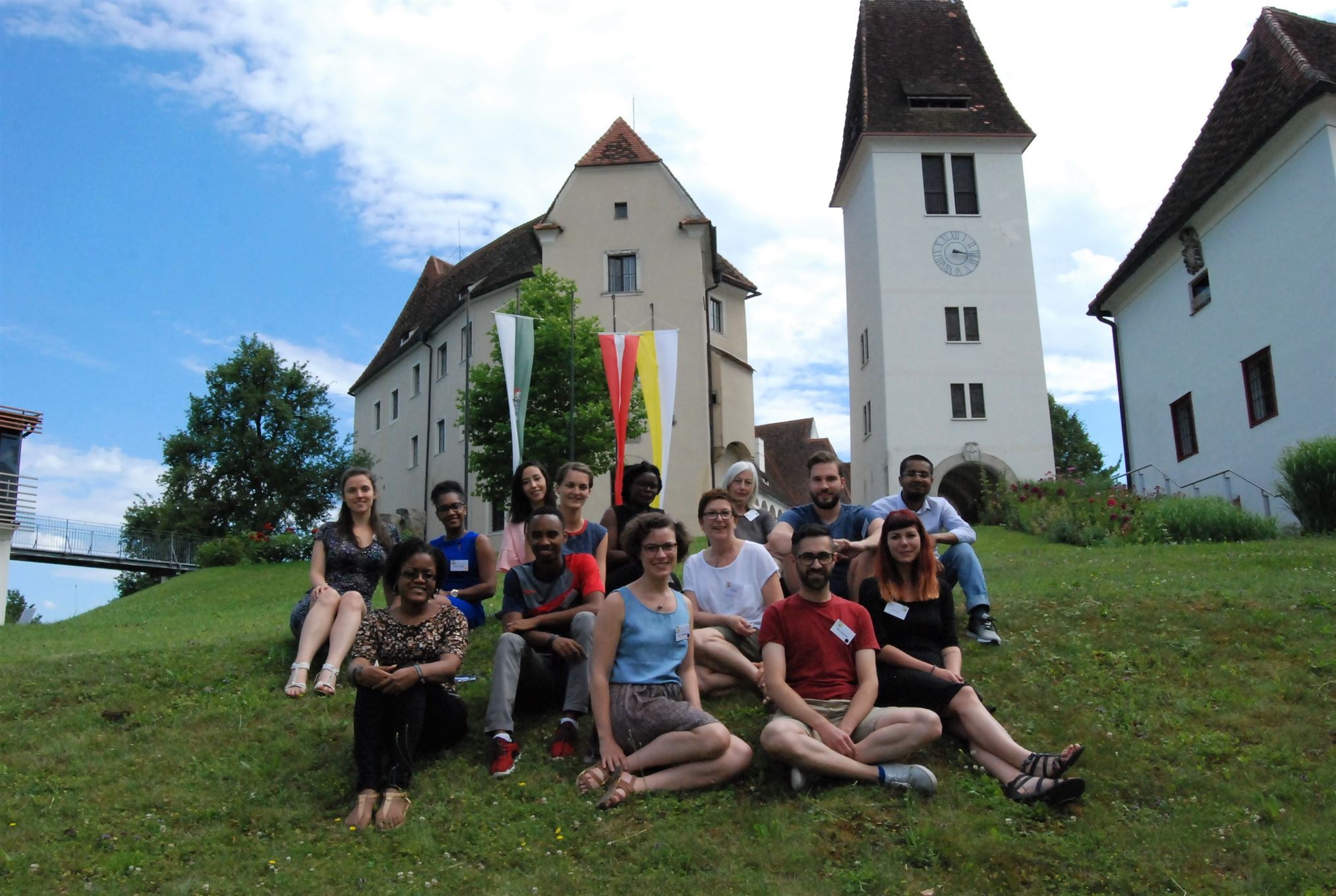The Graz International Summer School will once again open its doors this year on July 1. The Schloss Seggau castle, a historic site on a hill in the southeastern corner of Austria, will become the center of an academic discussion about state, society and religion.
Students and lecturers from more than 30 different countries will spend two weeks in ancient rooms talking about the latest political, technological and cultural developments and how these changes can be meditated and mediated. The summer school is open to internationally oriented and highly motivated students from all disciplines and nations.
An important part of the international character of the summer school is its close connection to Montclair State University.
“Graz and Montclair have been sister cities since 1950, and student and faculty exchanges have established very close links despite the geographical distance,” said Roberta Maierhofer, the academic director and initiator of the summer school. “You will become part of the summer school family, but also in a very specific way part of the Graz-Montclair family.”
For 13 years, students from various backgrounds have come together in Austria and immersed themselves in this unique educational opportunity. The two weeks are considered to be an intense, thought-provoking and bonding experience.

Students from more than 30 different countries engage in academic discussions.
Photo courtesy of GUSEGG
“You can’t be a spectator; you can’t lean back,” Maierhofer said in an interview for the Austrian Studies Newsmagazine. “You have to get involved. We intentionally do not target just undergraduate or graduate Ph.D. students. That’s important for the program because you have to talk to people of different ages and educational levels, and that’s what happens in life as well.”
These exchanges happen during morning and evening lectures, panel discussions and a series of seven different afternoon modules. The topics invite students and lecturers to widen their horizons and step out of their comfort zones.
For example, a history student can participate in economics and inequalities courses just as an English major can learn about climate change and sustainability in the respective module. Boundaries are blurred when disruptive intellectual approaches and ideas are developed in this summer school.
Additionally, students spend most of their spare time together during this trip. All meals, excursions to neighboring cities such as Graz and Maribor, as well as game and karaoke evenings contribute to the unique bonding atmosphere at Schloss Seggau castle.
“The best experience for me was the informal meetings in the evenings we had at the pool,” said Ziga Krajnc, 24, a master’s student of English language and literature in Slovenia who participated in 2017.
Motivated students also have the chance to increase their academic speaking and writing skills in additional voluntary courses, such as academic writing, public speaking and publication writing for Ph.D. students.
Luis Portes, an economics professor at Montclair State’s Feliciano School of Business, contributes to the ongoing exchange between the two cities. He has been teaching the economics seminar at Graz International Summer School Seggau since 2010.

Luis Portes, professor of economics at Montclair State, teaches at Graz International Summer School Seggau.
Photo courtesy of GUSEGG
“Eight years later, I am happy and proud to have been part of such a program,” Portes said. “I would encourage any student that has the opportunity to attend this life-changing experience.”
The summer school is indeed an experience that remains part of the participating students’ lives and contributes to their academic and personal development.
“I liked the intense discussions we had as they sharpened our thinking skills and served as a valuable exchange of new ideas,” said Maria Pilar Lorenzo, a researcher at Philippine Society for Public Administration who participated in 2017. “Of course, I also liked the friendships forged in spite of, or perhaps because of, our cultural and personal differences.”
The organizational team of the summer school helps the students keep these friendships alive after they have returned to their home countries. The alumni association of the summer school organizes informal meetings, lectures, discussions and panels all over the world to offer great opportunities for networking.
“Participating in the summer school has paved the way for all students and created international chances for them,” said Eva-Maria Trinkaus, a former participant and member of the organizational team.
Trinkaus encourages all interested students to apply to the program.
“We read each cover letter, each motivation letter and each reference,” Trinkaus said. “If these texts allow us to get a holistic idea of the student’s character, chances are high that we accept the application.”
Applications for this year’s summer school will be accepted until March 2. Montclair State students are welcomed to reach out to their dean’s office, the Office of International Engagement, or get in direct contact with the summer school’s team via gusegg@uni-graz.at. For more information, visit http://international.uni-graz.at/en/gusegg.



